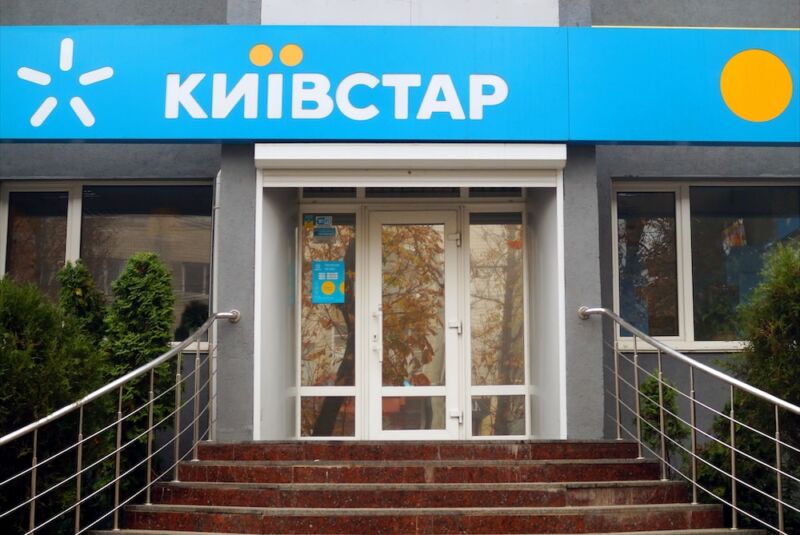
Getty Images
Ukrainian civilians on Wednesday grappled for a second day of widespread cellular phone and Internet outages after a cyberattack, purportedly carried out by Kremlin-supported hackers, hit the country’s biggest mobile phone and Internet provider a day earlier.
Two separate hacking groups with ties to the Russian government took responsibility for Tuesday’s attack striking Kyivstar, which has said it serves 24.3 million mobile subscribers and more than 1.1 million home Internet users. One group, calling itself Killnet, said on Telegram that “an attack was carried out on Ukrainian mobile operators, as well as on some banks,” but didn’t elaborate or furnish any evidence. A separate group known as Solntsepek said on the same site that it took “full responsibility for the cyberattack on Kyivstar” and had “destroyed 10,000 computers, more than 4,000 servers, and all cloud storage and backup systems.” The post was accompanied by screenshots purporting to show someone with control over the Kyivstar systems.
In the city of Lviv, street lights remained on after sunrise and had to be disconnected manually, because Internet-dependent automated power switches didn’t work, according to NBC News. Additionally, the outage prevented shops throughout the country from processing credit payments and many ATMs from functioning, the Kyiv Post said.
The outage also disrupted air alert systems that warn residents in multiple cities of incoming missile attacks, a Ukrainian official said on Telegram. The outage forced authorities to rely on backup alarms.
“Cyber specialists of the Security Service of Ukraine and ‘Kyivstar’ specialists, in cooperation with other state bodies, continue to restore the network after yesterday’s hacker attack,” officials with the Security Service of Ukraine said. “According to preliminary calculations, it is planned to restore fixed Internet for households on December 13, as well as start the launch of mobile communication and Internet. The digital infrastructure of ‘Kyivstar’ was critically damaged, so the restoration of all services in compliance with the necessary security protocols takes time.”
Kyivstar suspended mobile and Internet service on Tuesday after experiencing what company CEO Oleksandr Komarov said was an “unprecedented cyberattack” by Russian hackers. The attack represents one of the biggest compromises on a civilian telecommunications provider ever and one of the most disruptive so far in the 21-month Russia-Ukraine war. Kyivstar’s website remained unavailable at the time this post went live on Ars.
According to a report by the New Voice of Ukraine, hackers infiltrated Kyivstar’s infrastructure after first hacking into an internal employee account.
Solntsepek, one of two groups taking responsibility for the attack, has links to “Sandworm,” the name researchers use to track a hacking group that works on behalf of a unit within the Russian military known as the GRU. Sandworm has been tied to some of the most destructive cyberattacks in history, most notably the NotPetya worm, which caused an estimated $10 billion in damage worldwide. Researchers have also attributed Ukrainian power outages in 2015 and 2016 to the group.

